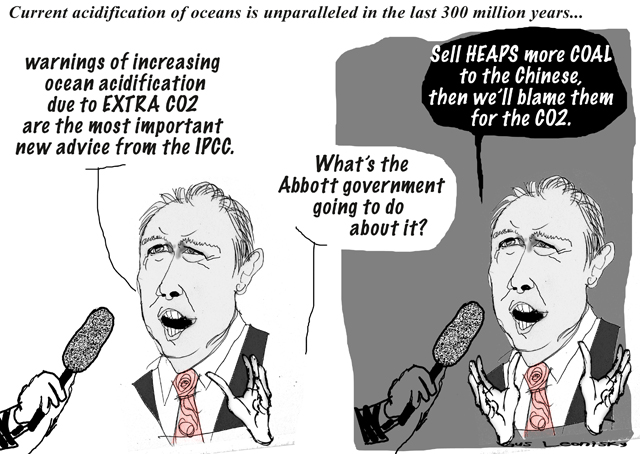Search
Recent comments
- new dump....
7 hours 50 min ago - incoming disaster....
7 hours 57 min ago - olympolitics.....
8 hours 2 min ago - devil and devil....
11 hours 40 min ago - bully don.....
15 hours 36 min ago - impeached?....
20 hours 23 min ago - 100.....
1 day 4 hours ago - epibatidine....
1 day 10 hours ago - cryptohubs...
1 day 11 hours ago - jackboots....
1 day 11 hours ago
Democracy Links
Member's Off-site Blogs
krill bitter pill...

''Remember that 40 per cent of all the carbon dioxide going into the oceans goes into the Southern Ocean. It's going to hit high, and hit hard,'' she said.
Dr Roberts said work on tetrapod snails showed distinct acidification effects. ''We're finding evidence that shell structure has been getting softer since 1997.''
Similar problems face foraminifera, countless micro-organisms which also rely on calcium carbonate for their structure.
But it is the keystone Antarctic species, the shrimp-like krill, that is a focus of concern about future acidification.
Biologist So Kawaguchi said Antarctic krill were already experiencing changing climate stressors such as rising temperatures and changes in their planktonic food production.
In an aquarium world with carbon dioxide elevated at predicted rates, krill eggs failed to develop properly, Dr Kawaguchi said.
If emissions were to continue to rise, harm would increase during coming decades to the point where by 2300, krill would be unable to hatch in vast areas of the Southern Ocean.
Chief scientist at the Antarctic Division, Nick Gales, said work was beginning on the flow-on effects of the loss of krill.
''Animals that don't have the flexibility to prey switch are likely to be more in trouble,'' Dr Gales said.
''Among the whales, it would be the blue whale and the Antarctic minke which are reliant on krill. And there is a whole range of seabirds.''
Read more: http://www.smh.com.au/federal-politics/political-news/risks-grow-for-antarctic-life-20131006-2v2d3.html#ixzz2gyXYvQFS
- By Gus Leonisky at 7 Oct 2013 - 6:26am
- Gus Leonisky's blog
- Login or register to post comments
... and save money by getting rid of the experts...
The climate change expert Professor Tim Flannery's "Obama-style" campaign to raise cash for a new Climate Council has generated $1m.
Flannery was sacked as head of the federal government’s Climate Commission when the prime minister, Tony Abbott, announced he was abolishing the body to save money.
It was set up two years ago by the former Labor government to increase public awareness of climate change science.
The commission once had $1.6m in annual taxpayer funding at its disposal but the new council is relying entirely on donations generated through an "Obama-style" online fundraising drive.
The council’s chief executive, Amanda McKenzie, said 20,000 Australians had made donations. The average donation was $50.
"Australians have demanded to know what is happening to the planet," she said.
http://www.theguardian.com/environment/2013/oct/05/climate-council-raises-1m-through-its-obama-style-fundraising-drive